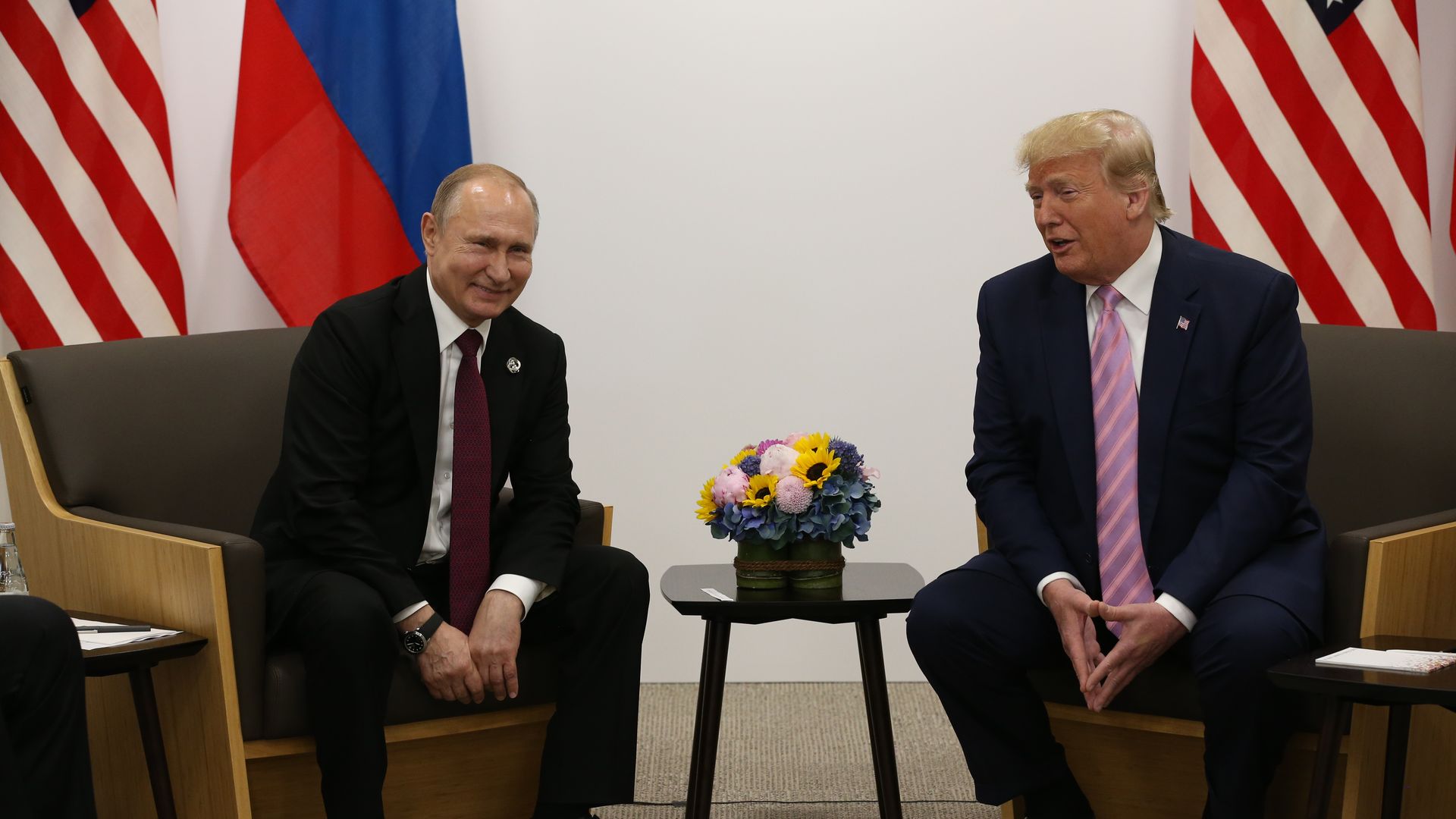Bipartisan lawmakers call on Trump to launch probe of Navalny poisoning
Add Axios as your preferred source to
see more of our stories on Google.

Putin and Trump at G20 summit in Japan in 2019. Photo: Mikhail Svetlov/Getty Images
The top Democrat and Republican on the House Foreign Affairs Committee sent a letter to President Trump on Tuesday requesting an investigation into the alleged poisoning of Alexei Navalny, a Russian opposition leader and leading critic of President Vladimir Putin.
Why it matters: Chairman Eliot Engel (D-N.Y.) and ranking member Michael McCaul (R-Texas) note that U.S. law requires the administration to determine within 60 days whether an accused country has used chemical weapons in violation of international law. If this is the case, U.S. sanctions must be imposed.
The big picture: The Trump administration previously slapped sanctions on Russia under the same Chemical and Biological Weapons Control and Warfare Elimination Act of 1991 after determining that the Kremlin used a nerve agent to target former Russian intelligence officer Sergei Skripal on British soil.
The other side: Trump told reporters last Friday he doesn't "know exactly what happened" to Navalny, despite the German government's assessment that the poisoning was conducted with Novichok — the same agent used to target Skripal.
- "We have not had any proof yet, but we will take a look. ... I would be very angry if that is the case." Trump said Friday of the German government's analysis.
- World leaders including U.K. Prime Minister Boris Johnson, German Chancellor Angela Merkel and NATO Secretary-General Jens Stoltenberg have condemned the attack and demanded an independent investigation.
What they're saying: "The poisoning of Mr. Navalny is particularly disturbing given that a Novichok agent was also used in a March 2018 attack on former Russian intelligence officer Sergei Skripal in Salisbury, England," Engel and McCaul wrote.
- "Those responsible for this despicable attack must be held accountable, and Russian President Vladimir Putin must know that he and his cronies will not be allowed to violate international law with impunity."
